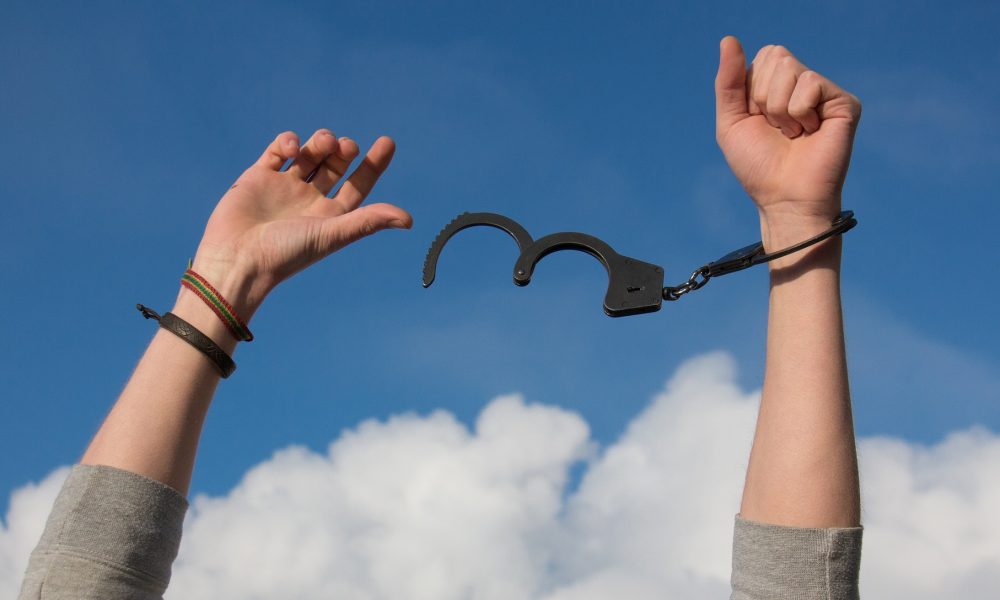The top federal narcotics official urged the administration to “deviate from criminalization” under the War on Drugs, saying the state’s failure to provide drug treatment to inmates will only exacerbate the ongoing opioid overdose crisis.
“There remains a commonly held belief that simply ceasing drug use while incarcerated is an effective means of treatment,” Nora Volkow, director of the National Institute on Drug Abuse (NIDA), wrote in a new opinion piece. “But that belief is both inaccurate and dangerous.”
In fact, drug overdose “is the No. 1 cause of death for people returning from prison,” Volkow continued, “and providing addiction treatment in these settings could change that.”
NIDA leaders called for expanding access to medication-assisted treatment using the Food and Drug Administration (FDA)-approved drugs methadone, buprenorphine and naltrexone, and said a shift away from the criminal war on drugs could lead to improved treatment outcomes and support for families.
“Fundamentally, the best or only option for an individual to receive addiction treatment does not have to be while in prison,” Volkow wrote in an article published last week in the life sciences publication STAT. Republished It was posted on NIDA’s website on Monday: “In an ideal world, America’s treatment and prevention system would aggressively address the social determinants of health and mental health needs to stop the cycle of addiction and incarceration.”
“Moving away from the criminalization of substance use disorders to a public health approach would eliminate important structural practices that perpetuate inequities,” she said. “It would improve the lives of people and their families.”
🆕 @StatNews Nora’s blog editorial: #Nida Director Nora Volkow, PhD, and colleague Tisha Wiley, PhD, discuss how the overdose crisis impacts prison and jail inmates and the importance of providing addiction treatment in criminal justice settings. translator https://t.co/nlqpzAEvKd pic.twitter.com/muUAXr2Hog
— NIDA News (@NIDAnews) July 15, 2024
Regarding medication-assisted treatment for prisoners with opioid use disorder, Volkow argues in the article that it “is beneficial to public health and public safety. It is cost-effective and helps break the cycle of recidivism. It reduces strain on the entire healthcare system, including emergency departments.”
“Programs are underway across the country to provide naloxone and opioid use disorder medications in prisons and jails, along with instruction, training, and social supports,” she wrote. “Federal agencies have launched programs to help manage withdrawal symptoms in prisons and provide financial medical assistance to those preparing to re-enter society. Recently announced revised methadone rules allow prisons and jails that are registered as hospitals or clinics to prescribe opioid use disorder medications under certain circumstances.”
A Rhode Island study estimated that if inmates had access to all three FDA-approved drugs, the state could reduce deaths by 30 percent, Volkow noted. But nationally, fewer than half of prisons and one in 10 state prisons offer all three drugs.
“All three are effective, safe, and life-saving, yet these medications are woefully underused, especially in criminal justice settings,” she wrote. “And studies show that people who receive these medications while in prison or jail are less likely to revert to drug use and more likely to continue in treatment in the community afterward.”
Volkow added that roughly 60 percent of incarcerated people have a substance use disorder, citing a 2017 Department of Justice report.
Even those in charge of drug law enforcement “are beginning to understand how addiction treatment makes everyone safer,” the article said, citing Massachusetts Sheriff Chris Donnellan, whose prison is one of the few with an approved opioid treatment program.
“When someone is admitted to our facility, we are often the first treatment provider they’ve seen in years,” Donnellan told his research partners at the University of Massachusetts. “This treatment saves lives and helps put them on the path to recovery. It makes our job a lot easier — there are fewer fights, less contraband, and our facilities are a lot safer.”
While there’s still a long way to go, Volkow highlighted a National Institutes of Health collaborative research funding initiative “aiming to identify ways to link people with addictions to care during and after their time in correctional facilities. These researchers stand ready to share new evidence as it emerges and to help other communities make data-driven changes and implement what’s most effective in the justice system,” he wrote.
Despite the federal government’s stubborn stance on drug reform, Mr. Volkow, who has been NIDA’s director since 2003, has been a frequent critic of the status quo and a vocal supporter of rethinking the country’s criminal response to drugs.
For example, late last year she said: Taking an abstinence-only approach to drug treatment was “magical” thinking that would “cost many lives.”
She also says: Drug criminalization “has created a structurally racist system.” A society in which black people are treated “worse” than other people.
When it comes to marijuana, Volkow said: There is ‘no evidence’ that occasional marijuana use is harmful for adultsAnd at a 2022 event hosted by anti-marijuana advocacy group DARE, she reiterated: The data showed marijuana use among young people remained stable. “Even though it’s legal in many states.”
Meanwhile, Volkow said at a congressional hearing in May: ‘Great excitement’ over therapeutic effects of psychedelicsBut she warned that while the treatment option is “very promising,” people need to understand it’s “not magic” and more rigorous research is needed.
Federal officials She has repeatedly spoken about her interest in psychedelic therapyLocal and state reforms could lead to more people using substances like psilocybin outside of clinical settings, but they also recognize its societal impacts.
She said in 2022 The psychedelic drug ‘train’ has departed amid policy reform movementVolkow discussed the issue. In a previous interview with Marijuana Moment In the same way.


